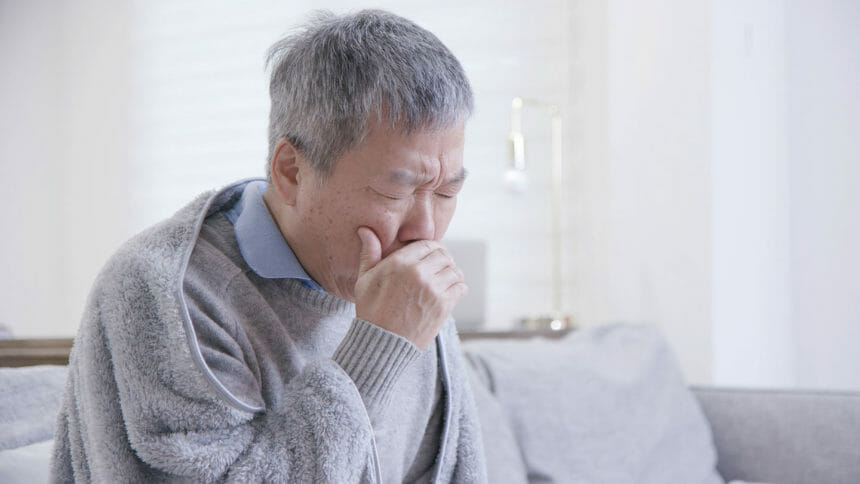
People who experienced severe long COVID had two stand-out symptoms: Persistent cough and a lot of sputum within the year after being hospitalized for their initial infection, according to a new study.
The report details a team from Keio University in Tokyo that examined data on hospitalized adults who were diagnosed with COVID-19 between January 2020 and February 2021. The participants came from 26 different hospitals. Researchers compiled data and patient-reported outcomes from surveys and mobile apps during the year after the people were released. About 1,200 people were involved, but the numbers decreased as the study duration went on. In total, 690 people were evaluated throughout the entire course of the initiative.
The research was published on Nov. 14 in Respiratory Research.
Symptoms reported after people had COVID-19 included fever, cough, sputum, breathlessness, sore throat, taste impairment, smell impairment, abdominal pain, and diarrhea.
The rates of wet and dry cough were similar at 3, 6, and 12 months after infection. The proportion of people producing sputum without coughing increased over time compared with those with both sputum production and coughing, the authors reported.
At 12 months post-infection, severe COVID-19 was linked with cough and sputum production based on imaging findings, kidney and liver abnormalities and pulmonary blood clots. The team also noted higher levels of lactate dehydrogenase (which shows organ or tissue damage), Krebs von den Lungen-6 (which indicates lung inflammation or damage) and hemoglobin A1c (or elevated blood glucose).
At all follow-up visits, researchers analyzed the risk factors for the persistent symptoms. They say that use of intermittent mandatory ventilation (IMV), smoking and older age are all culprits.
“These findings emphasize that a preventive approach including appropriate vaccination and contact precaution and further development of therapeutic drugs for COVID-19 are [sic] highly recommended for patients with risk factors for severe infection to avoid persistent respiratory symptoms,” the authors wrote.



